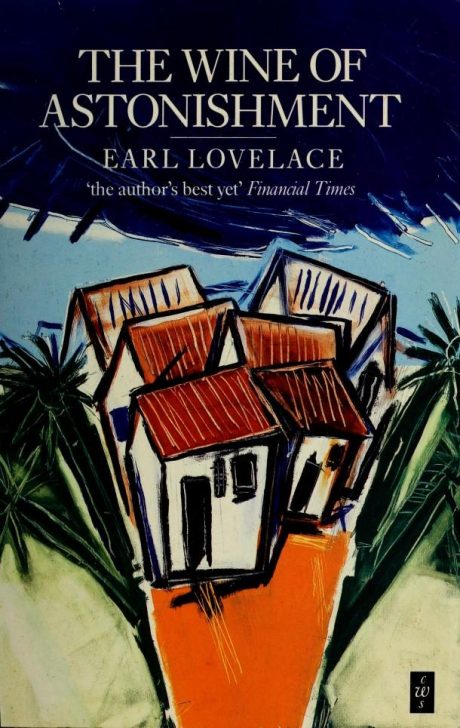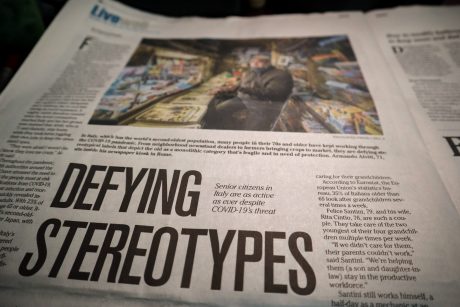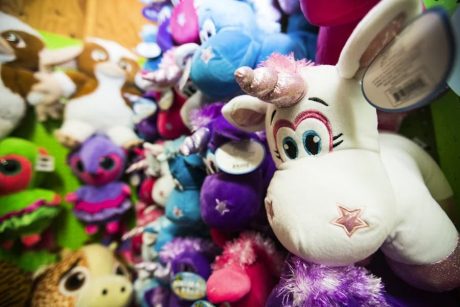
For writer-teachers, prizes often provide external validation—something awarded by others, a symbol of recognition.
However, what if we reframed the whole concept of prizes? What if prizes could also begin internally, as self-awarded milestones acknowledging our own growth, creativity, and resilience?
Prizes serve multiple functions in the writing world. They can elevate careers, provide financial support, and offer much-needed confidence boosts. But beyond traditional competitions, prizes can also be an integral part of the personal and professional development of writer-teachers. Here are five key points to consider when navigating prize culture, including how to create your own success criteria and apply self-compassion to the process.
1. Research the Culture of Literary Prizes
Before submitting to a competition, it’s essential to understand how literary prizes operate. Study past winners, themes, and judging criteria. The National Association of Writers in Education (NAWE) provides one of the most comprehensive listings of competitions, making it a crucial resource for writer-teachers looking for opportunities. Additionally, organizations like the Society of Authors (SoA) and the Writers’ Guild of Great Britain (WGGB) offer financial support and guidance for writers navigating the prize landscape.

Understanding what wins—and why—helps writers make strategic submissions. But it’s also an opportunity for reflection: what kind of writing do you value? Which prizes align with your personal ethos? By engaging deeply with prize culture, you gain insight into both the external literary world and your own creative ambitions.
2. Redefine Success on Your Own Terms

Prizes can be an excellent career boost, but they are not the only measure of success. Kei Miller, in his essay ‘The Minds of Writers‘ in the book Brave New Words (2020), challenges writers to think expansively and generously about their creative journeys . Rather than seeing validation as something controlled by external gatekeepers, writers can cultivate their own measures of success. Miller explores the responsibility that comes with being a writer. He argues that imagination shouldn’t be used to limit people but to expand possibilities, offering richer, more generous portrayals of individuals and communities. Drawing on Virginia Woolf’s insights about character, Miller stresses that writers should observe with care and depth, ensuring their portrayals do justice to the complexity of human nature.
At the heart of the piece is Miller’s critique of Mel Cooke, a Jamaican writer whose depiction of a gender-nonconforming person in a furniture shop reduces them to a spectacle. Rather than recognising the individual’s humanity, Cooke’s words dehumanise and belittle. Miller contrasts this with the work of Woolf, Erna Brodber, and Earl Lovelace—writers who emphasise the richness of their characters and the importance of seeing people in their full complexity. Brodber, for instance, challenges colonial narratives that dismiss the intelligence of marginalised groups, while Lovelace’s The Wine of Astonishment speaks to the struggles of communities resisting imposed norms.

Ultimately, The Minds of Writers is a powerful call to action. Writers should use their craft to imagine more generously, tell fuller truths, and ensure their words contribute to a world where everyone’s story is valued.
Ask yourself: What does a successful writing life look like to you? Is it about publication, student engagement, creative breakthroughs, or the ability to sustain a practice despite challenges? By establishing personal benchmarks, you ensure that your worth as a writer-teacher isn’t solely dictated by competition results.
3. Award Yourself ‘Internal Prizes’ Using Self-Compassion

Kristin Neff’s research on self-compassion highlights the importance of treating ourselves with the same kindness we extend to others (Neff 2023). Writer-teachers, who often juggle multiple responsibilities, are especially prone to self-criticism. When external recognition feels out of reach, self-compassion offers an alternative source of encouragement.
Self-compassion, as developed by Kristin Neff, is a transformative approach to handling life’s challenges, particularly in the realm of mental wellbeing, resilience, and personal growth. Her research breaks self-compassion into three main components: self-kindness over self-judgment, common humanity over isolation, and mindfulness over over-identification. These elements work together to help individuals respond to difficulties with care rather than criticism, recognising that suffering is part of the shared human experience and allowing emotions to be acknowledged without becoming consumed by them.
Neff’s extensive studies reveal that self-compassion is strongly linked to mental health benefits, including lower levels of anxiety, depression, stress, and even PTSD. Unlike self-esteem, which is often dependent on external validation and comparisons, self-compassion offers a more stable and unconditional sense of self-worth. Her research dispels myths that self-compassion is indulgent, weak, or promotes complacency; in fact, it fosters greater resilience, motivation, and healthier coping strategies. People who practise self-compassion tend to be more proactive, adaptable, and emotionally balanced, and they experience fewer negative effects from failure or criticism.
One of the most practical applications of Neff’s research is in self-compassion interventions, such as Mindful Self-Compassion (MSC) training, which has been shown to significantly improve mental health and emotional regulation. These programmes have been particularly effective for those facing chronic stress, trauma, or burnout—including healthcare workers, students, and caregivers. Neff also highlights the role of self-compassion in relationships, showing that those who treat themselves kindly are better equipped to build healthy, empathetic connections with others.
For writers, self-compassion is crucial. Writing can be an emotionally taxing process, filled with self-doubt, rejection, and perfectionism. Neff’s research suggests that fostering a compassionate inner voice can help writers maintain creative momentum, recover from setbacks, and embrace the learning process. Writing itself can also be a powerful tool for self-compassion, helping individuals process emotions, gain perspective, and develop a kinder relationship with themselves.
Ultimately, Neff’s work underscores the idea that self-compassion is not about avoiding responsibility or making excuses, but about approaching life with greater emotional strength and balance. Whether in personal life or creative pursuits, developing self-compassion can lead to more resilience, better mental health, and a more fulfilling sense of self.
So instead of waiting for an award panel to validate your work, why not create your own internal prize system? This could be as simple as celebrating the completion of a challenging piece, rewarding yourself for persistence, or recognizing moments when you have supported a student’s growth. By cultivating self-compassion, writer-teachers can build resilience and sustain their passion for both teaching and writing.
4. The Ethical Imagination: Expanding the Role of Writers

As has already been discussed, Miller emphasizes that writing is not just about creativity; it is also about ethics and imagination (2020), as part of the literary system, can shape what gets valued and published. Miller argues that writing isn’t just about storytelling—it’s an ethical act. Writers have the power to shape how people see themselves and each other, and with that comes a responsibility to do so with integrity. He highlights the need for reflection, research, and a commitment to representing people fairly, rather than reinforcing harmful stereotypes.
By participating in prize culture, writer-teachers also have a chance to push for greater inclusivity and representation.
How do we ensure that our own writing and teaching practices foster expansive, rather than limiting, perspectives? By mentoring students with diverse voices, engaging in self-reflective practices, and supporting ethical storytelling, writer-teachers contribute to a literary landscape that values depth, authenticity, and equity.
5. Prizes as Milestones, Not Endpoints

Winning a prize is not the final destination. Many writers who receive literary recognition still face financial struggles, mental health challenges, and the ever-present uncertainties of the industry. As highlighted in recent discussions about the difficulties authors face in securing book deals (Miller 2020) , prizes alone do not guarantee sustainable careers.
For writer-teachers, the challenge is balancing external aspirations with a long-term, fulfilling creative life. Whether or not a prize arrives, the work continues. The goal is not just to win, but to keep writing, keep teaching, and keep growing.
Creative Task: Devise Your Own Prize!

Imagine you are creating a prize for yourself or for writers you know. This could be fun, manageable, or entirely theoretical. Consider:
- What is the name of your prize? (E.g., The Freewriting Award, The Teacher-Writers’ Prize, The Coffee-Fuelled Creativity Medal)
- What is the prize for? (Finishing a tricky chapter? Writing through self-doubt? A great workshop session?)
- What is the prize itself? (A fancy notebook? A self-care day? A golden pen? Confidence booster?)
- Who decides? (Do you award it to yourself? Do you create a writers’ circle where people nominate each other?)
Make it personal, make it joyful—perhaps it’s a badge you print and hang on your desk or a secret writers’ society where you send out handmade awards.
Key points

Prizes can be powerful, but they do not define a writer-teacher’s worth. By researching prize culture, setting personal success criteria, practicing self-compassion, fostering ethical storytelling, and viewing prizes as part of a larger journey, writer-teachers can create more sustainable, fulfilling careers.
What are your own internal prizes? How do you measure success beyond external validation? Let’s redefine the ways we honour our work—as teachers, as writers, and as lifelong learners.
References
Neff, K.D. (2023) ‘Self-Compassion: Theory, Method, Research, and Intervention’, Annual review of psychology, 74(1), pp. 193–218. Available at: https://doi.org/10.1146/annurev-psych-032420-031047.
National Association of Writers in Education (NAWE). The Writers’ Compass – Competitions and Submissions. Available at: https://www.nawe.co.uk/the-writers-compass/events-and-opportunities/competitions-and-submissions.html
Sky News. Novelist Opens Up About Mental Health and Financial Difficulties. Available at: https://news.sky.com
Amazon Listings: Murmuration by Emma Brankin & Attention Seekers by Emma Brankin.
Miller, K. (2020) ‘The Minds of Writers’ in Nasta, S. and Yasmin, R. (2020) Brave new words. Oxford: Myriad.


Leave a Reply